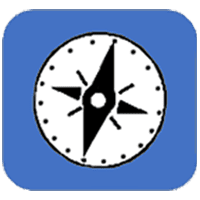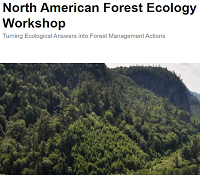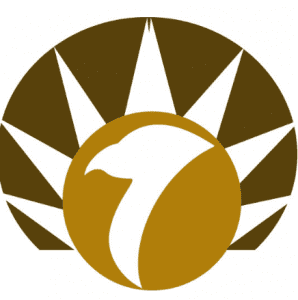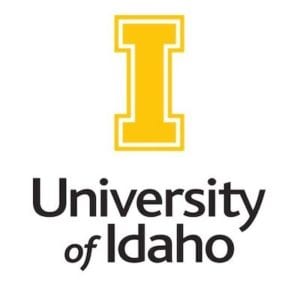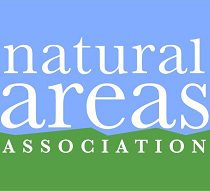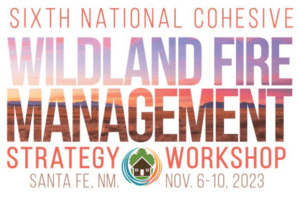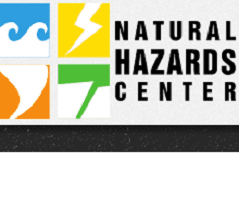Field Tour / Workshop
Virtual workshop recordings and resources.
Invasive annual grasses–such as cheatgrass, medusahead, and ventenata–are the leading cause of degradation and loss of America’s sagebrush grasslands, reducing forage and habitat, fueling more frequent and larger wildfires, and threatening rural economies. While invasive grasses are widespread, there remains a generational opportunity to proactively address this threat. However, many land managers may not be equipped with the information needed to plan and implement effective treatments.
In this one-day virtual workshop, participants will learn about guiding principles, strategic planning processes, tools, and tactics for managing annual grass invasion in sagebrush country. Participants will be introduced to the proactive “defend and grow the core” management philosophy, which emphasizes protecting intact and functioning native plant communities, and expanding them through improved management techniques, rather than initially starting with the most degraded areas. This workshop seeks to inspire participants and start conversations across the sagebrush biome on how to meet the invasive annual grass problem head on in their own watersheds. We hope this information will be especially useful to any land manager, landowner, or conservation practitioner working to conserve and protect the sagebrush biome.
Workshop website.
The 14th North American Forest Ecology Workshop (NAFEW) will take place June 24 – 27, 2024 in Asheville, NC
The format of the meeting will be different from past years, as we will kick off the meeting with all day field trips on Monday followed by a plenary talk in the evening. Sessions will be offered all day Tuesday, half day Wednesday, and all day Thursday. Local field trips will be offered Wednesday afternoon and workshops will occur throughout the week. A banquet is planned for Tuesday evening.
Summit webpage.
The summit will be in Lakeview, OR on Sept. 26-27, 2023. There will be in-person and virtual options.
Forum webpage.
This year’s forum will be held in Boise, ID with a symposium on October 5 and a field tour on October 6.
Rising from Ashes: A Tribe’s Nature-based Approach to Watershed Restoration will highlight an innovative and iconic case study in public and private collaboration on sovereign tribal lands following a series of catastrophic wildfires. Given the increasing frequency of these fires, there is a vital need to mitigate destruction through preemptive nature-based restoration practices before disaster strikes. By collaborating with federal agencies and other partners to incorporate indigenous knowledge and values into the recovery planning process, the Santa Clara Pueblo is working to achieve long-term, sustainable resiliency of the watershed.
The purpose of this Stewardship in Action Field Workshop is not simply to share what was learned by the Santa Clara Pueblo and their many partners, but also to engage land and water management practitioners from tribal nations, federal and state agencies, and nonprofit organizations from around the continent to share information and leverage success for the benefit of local communities.
The agenda features three days of content featuring both indoor presentations and field experiences. Sessions will explore public and private collaboration on sovereign tribal lands, process-based restoration and watershed resilience, forestry and fire management, sediment stabilization, native plant restoration, indigenous knowledge, nature-based solutions, and preparing for future climate impacts by working together.
Meeting webpage.
Brad Schultz and colleagues will guide us on a tour to several locations where they have located and re-taken photos that were originally taken decades earlier. Topics for discussion will include, but not be limited to, aspen dynamics (is it disappearing or expanding?), expansion/increase of mountain browse species, and responses of higher elevation/higher ppt. sagebrush plant communities to fire! Please bring your own lunch and be prepared to eat on the go (in vehicles). Also be sure to bring plenty of water, snacks, sunscreen, bug stuff, and whatever else you need to spend the day out on rangelands. We will plan to make two outhouse stops at a campground during the tour.
Workshop recordings.
Wet or mesic meadows are rare but disproportionately important ecosystems in Utah. Gully erosion and channel incision are widespread problems reducing natural resiliency and water storage capacity, which is impacting wildlife and working lands. Simple, low-tech restoration methods developed for dry lands of the desert southwest by Bill Zeedyk provide effective tools for protecting and restoring meadow systems. These techniques are cost-effective and hand-built allowing more people to participate in restoration.
In this one-day virtual workshop, Utah land managers and partners will be introduced to: reading the landscape to recognize meadow conservation opportunities, various low-tech “Zeedyk” structures (e.g., One Rock Dams, Zuni Bowls), project planning, implementation, and monitoring. Regional instructors will share tips and lessons learned from implementing low-tech meadow restoration projects across the West, while Utah conservation partners will discuss local opportunities and considerations.
Workshop website.
This Workshop is considered “mission critical” for anyone working on these issues in local, state, Tribal and federal agencies, and organizations as well as non-governmental organizations and private companies. There is no other forum in the nation that provides these opportunities.
Workshop website.
About the Workshop: Since 1975, the Natural Hazards Center has hosted the Annual Natural Hazards Research and Applications Workshop in Colorado. Today the Workshop brings together federal, state, and local mitigation and emergency management officials and planning professionals; representatives of nonprofit, private sector, and humanitarian organizations; hazards and disaster researchers; and others dedicated to alleviating the impacts of disasters. You can read more about the Workshop and its history on the Center’s website.
Workshop Information: Information about this year’s theme and opportunities to contribute can be found under the Workshop Info tab above. You can also browse our past Workshops to see previous programs, speakers, and other materials.
Please make sure and subscribe to Workshop updates so you can receive notifications regarding due dates and important announcements.
Check back for upcoming virtual workshop opportunities and curriculum materials.
Engage your students in hands-on activities to explore climate change and wildfire in the Southwest! This standards-aligned curriculum unit developed in coordination with the USDA Southwest Climate Hub uses experiments, games, demonstrations, and a group project to introduce students to how increased temperature and changes in precipitation affect wildfire risk in ecosystems. In this workshop, you will hear from an expert in the field, participate in a Q&A session, and then get training to implement these lessons in your classroom. Participating teachers will receive a $50 stipend and the opportunity to win raffle prizes.


